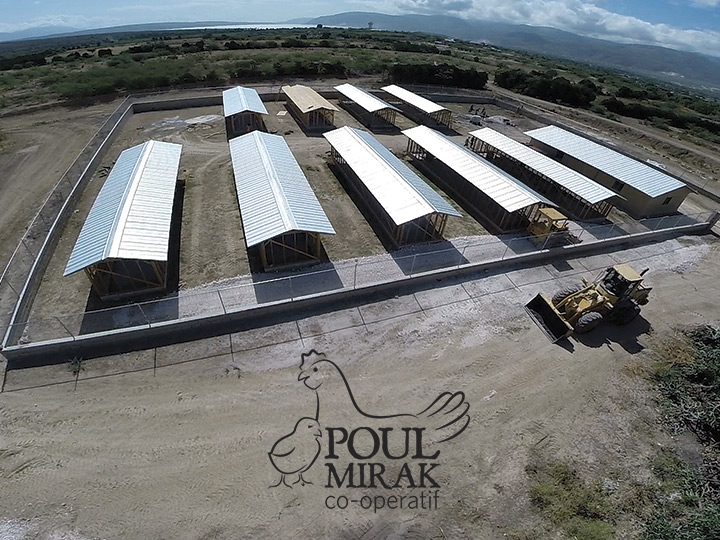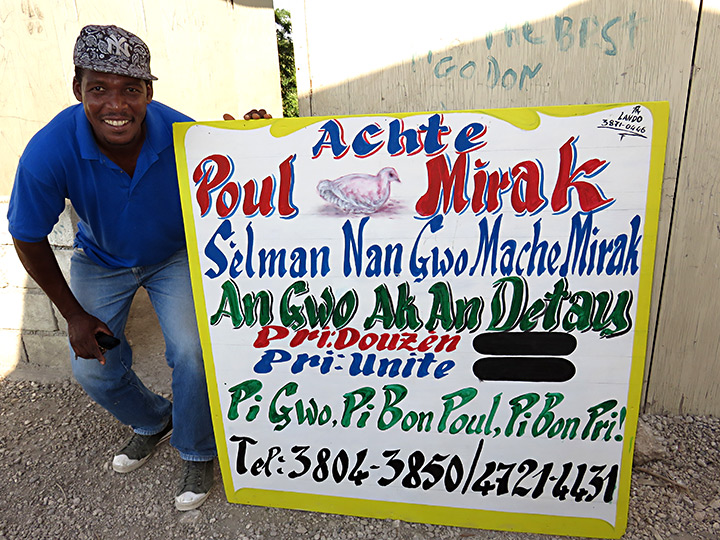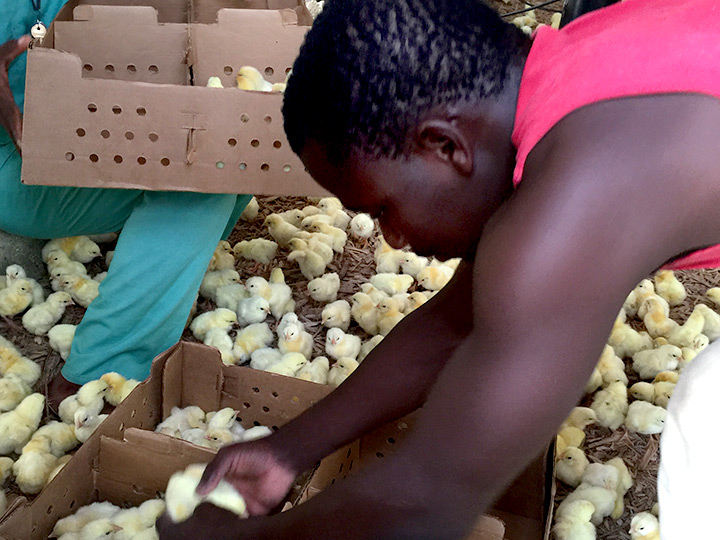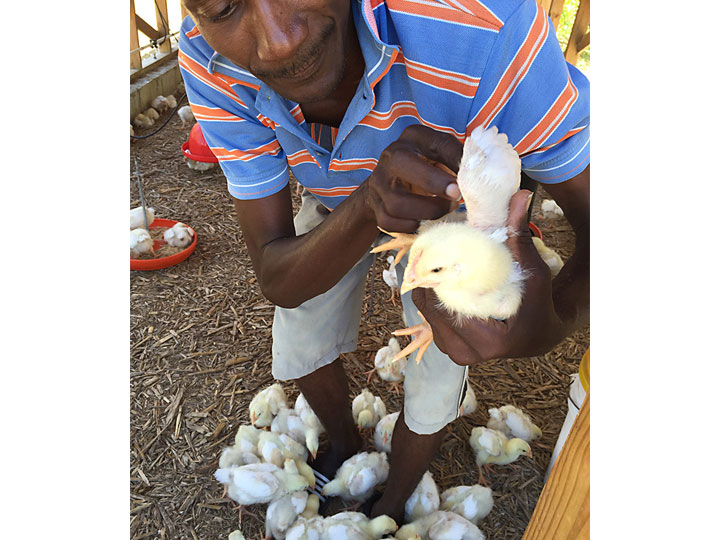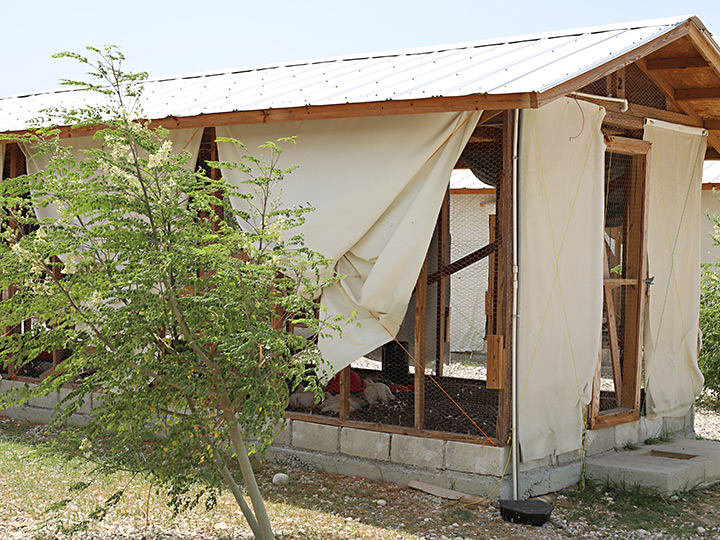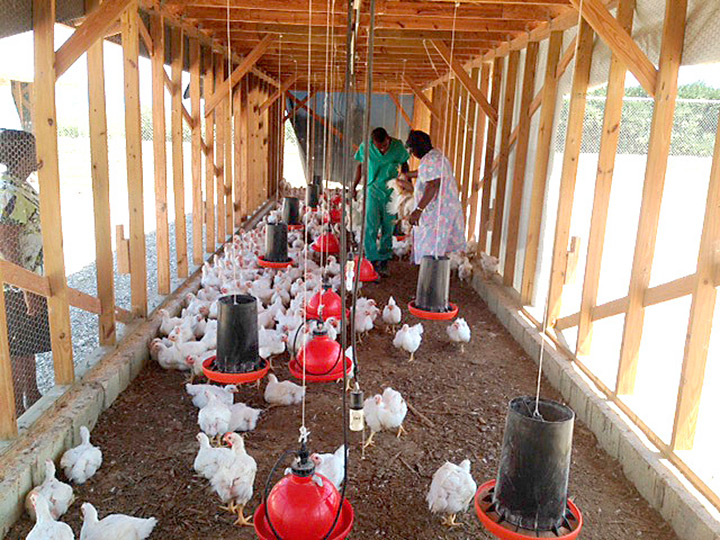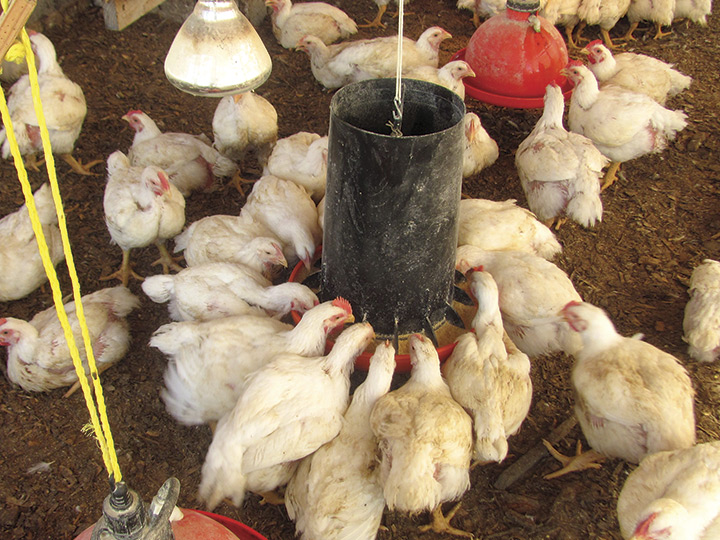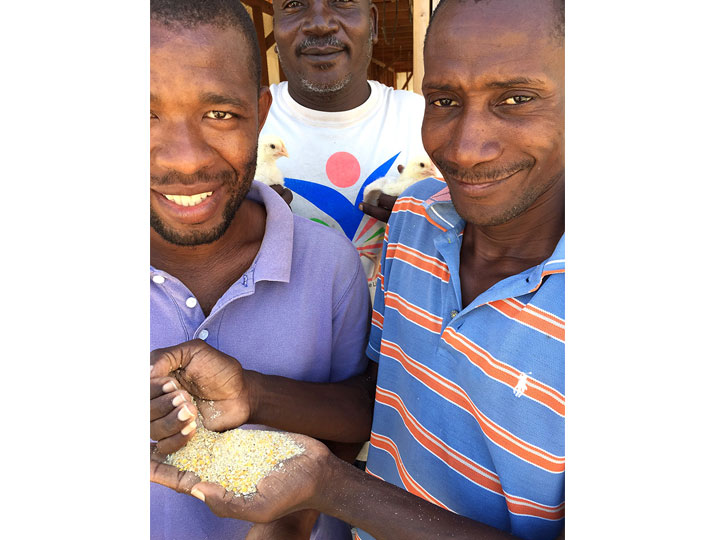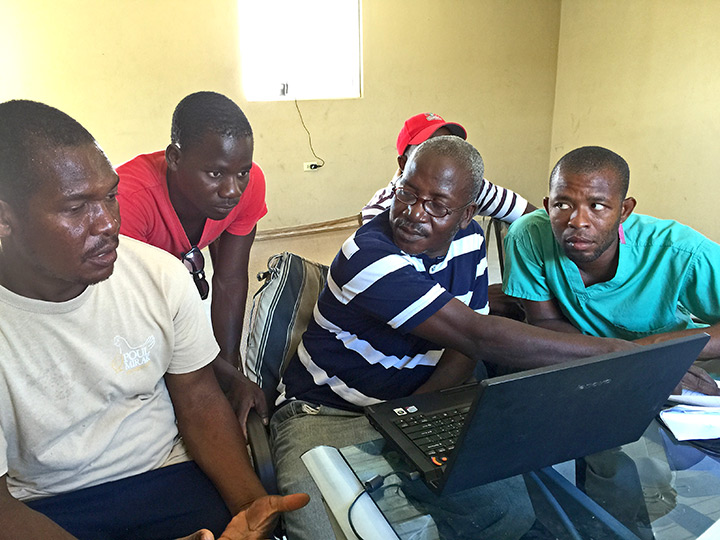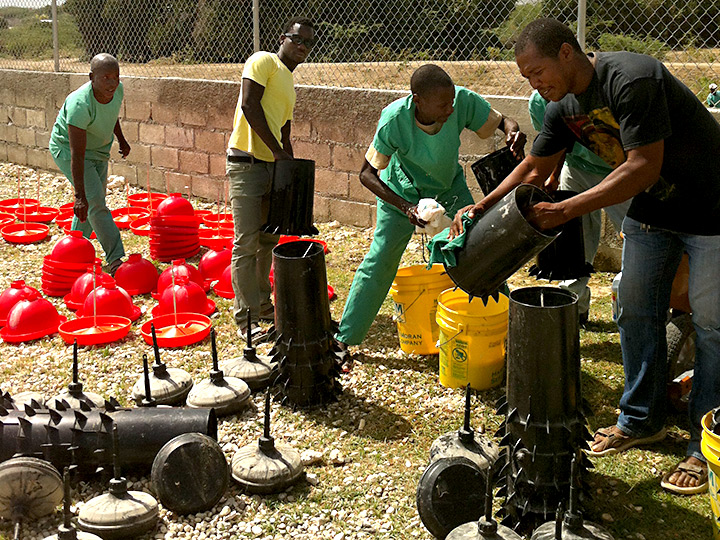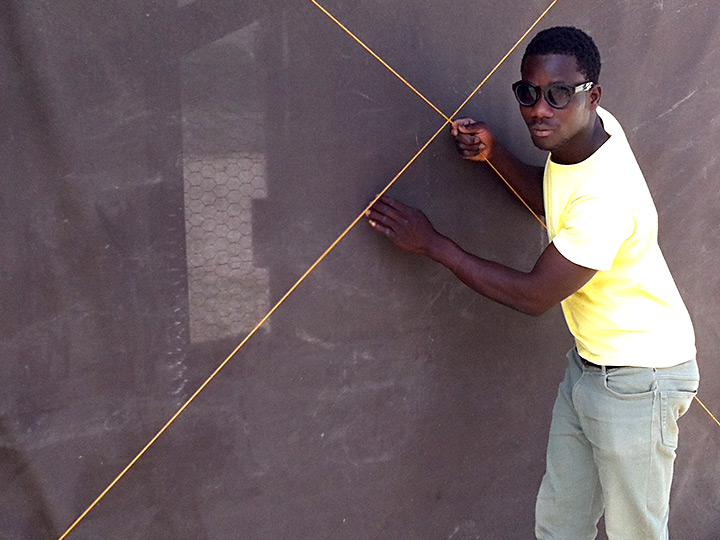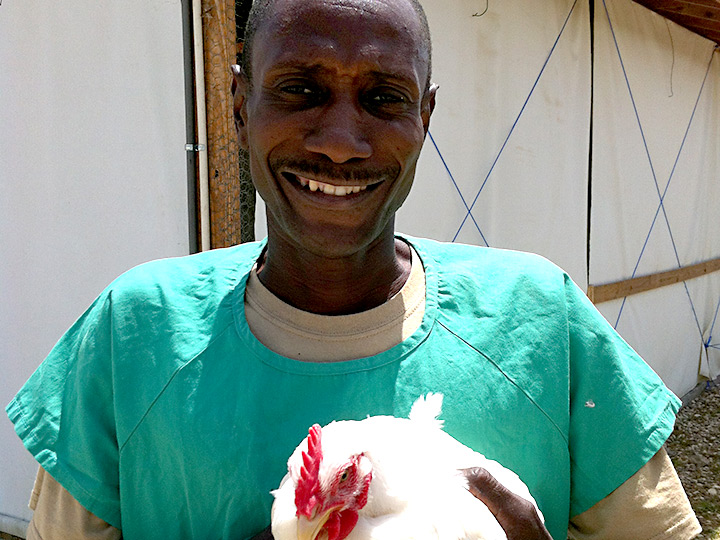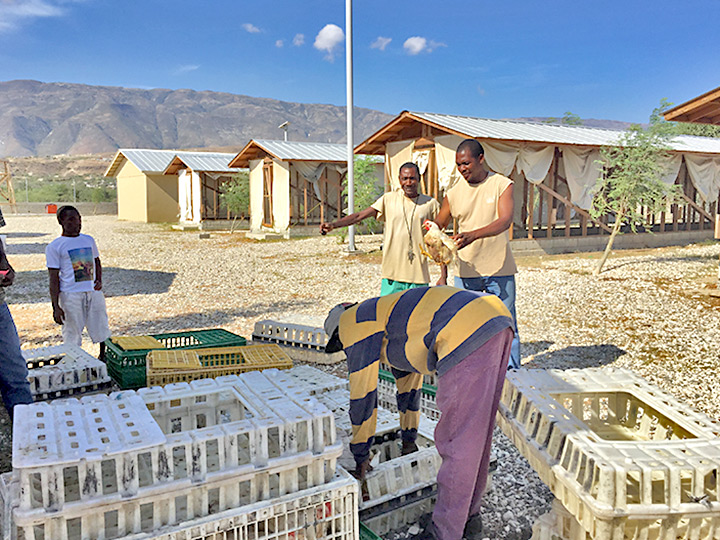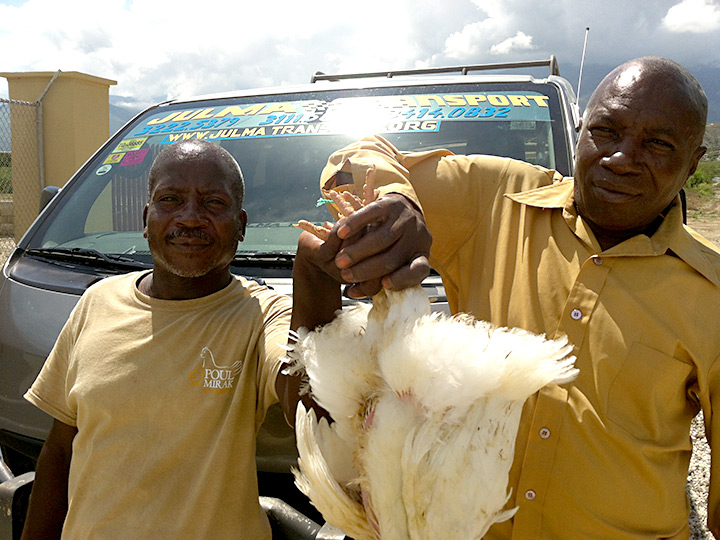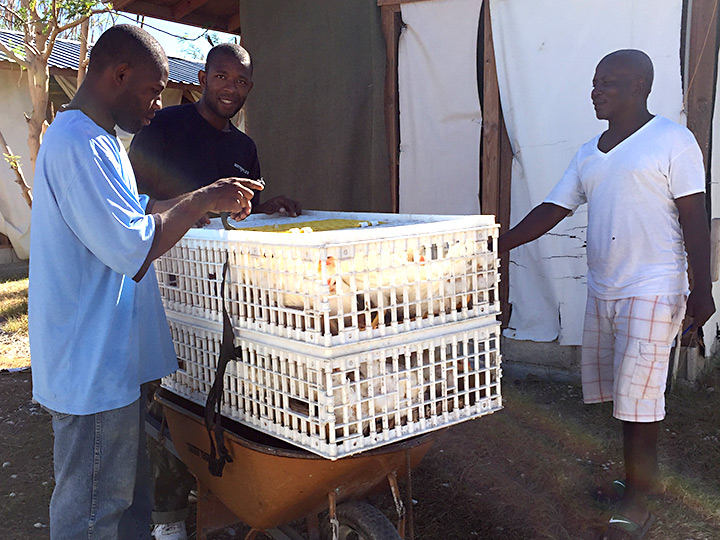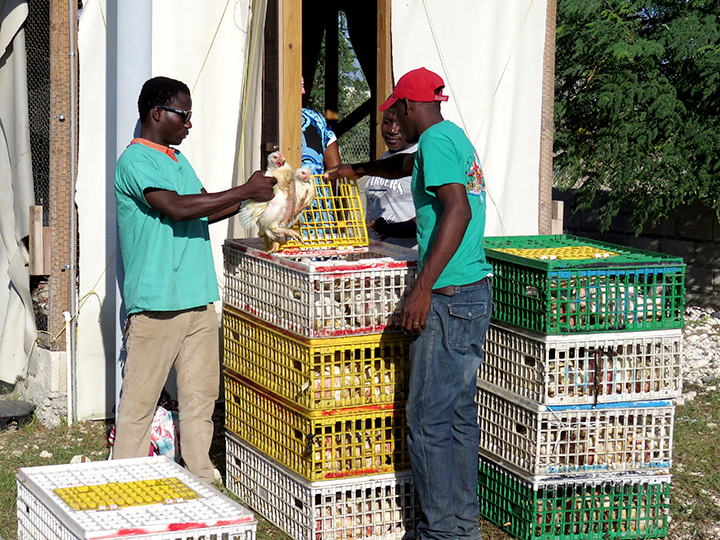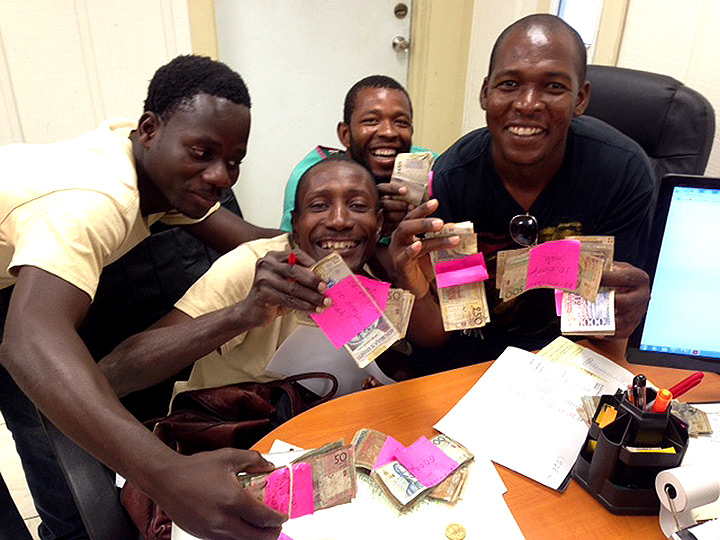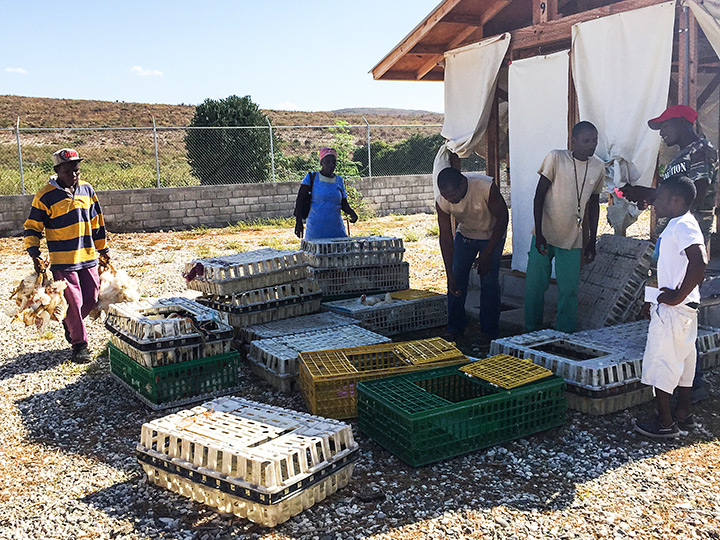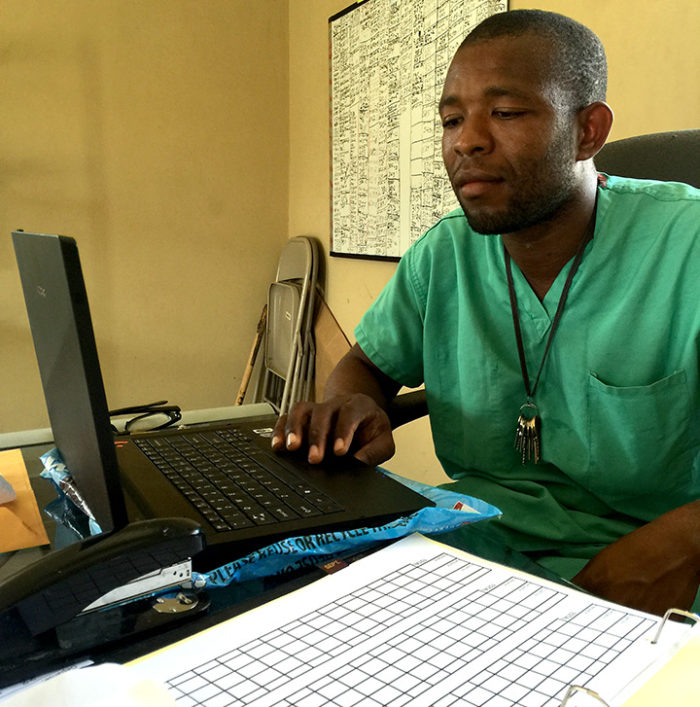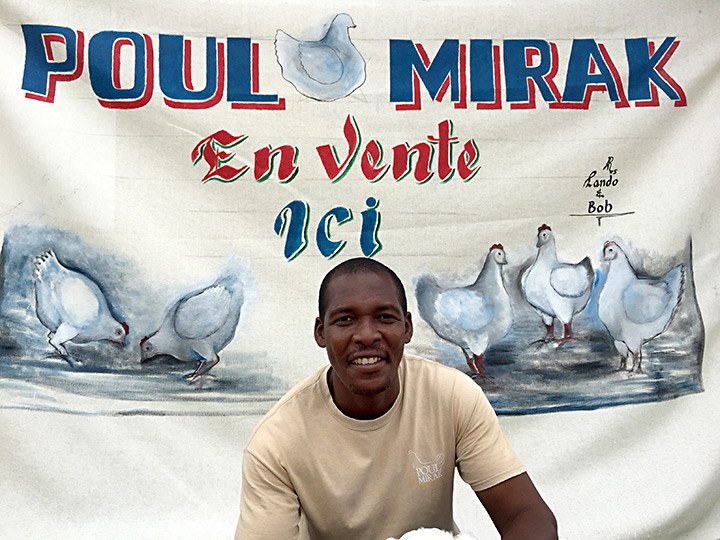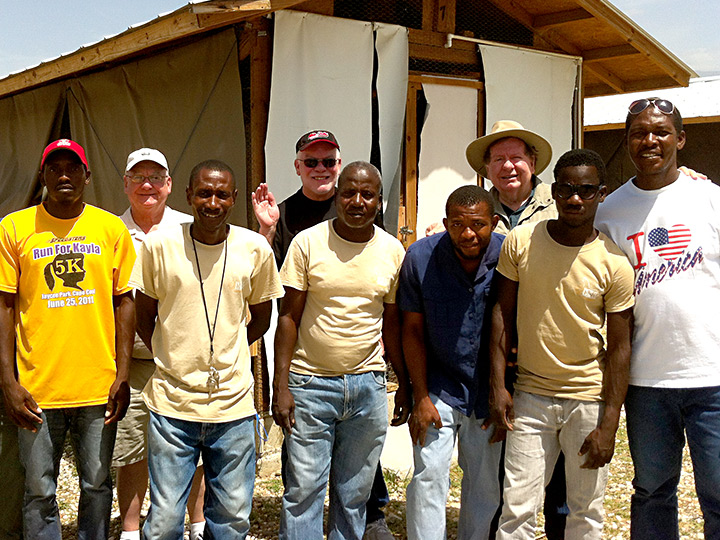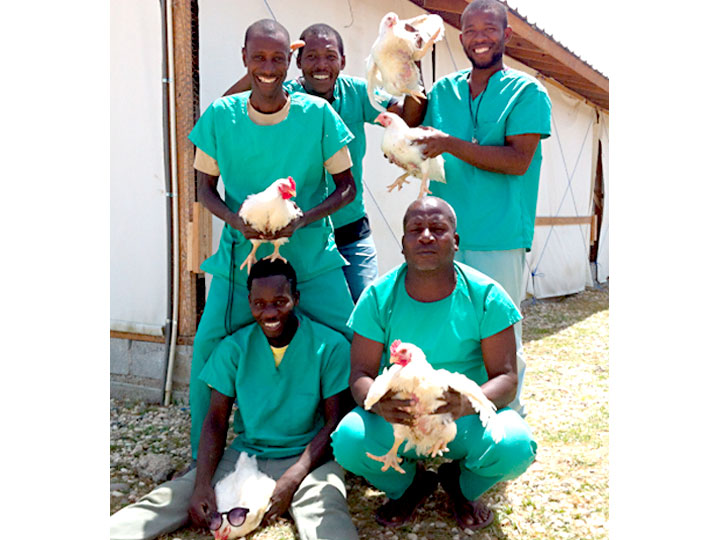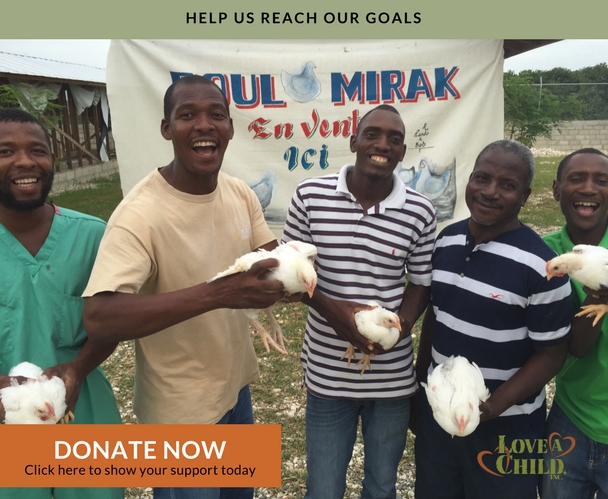The chicken farm co-op project is located near Love A Child’s new Marketplace (Gwo Maché Mirak).
The Poul Mirak Co-operatif (which translates to Miracle Chicken Co-op) is a unique social enterprise model that was established as a project for gaining self-sustainability and dignity through sustainable enterprise. It operates in conjunction with and in support of Gwo Maché Mirak. This one-of-a-kind model for long-term sustainability relies upon focused donor support to provide the foundations of infrastructure and working capital to begin a broiler growing operation. Five eager locals were picked to join the co-op. We equipped, trained, and now mentor these five members to offer a hand up in lifting their community out of poverty.

Our model not only provides a way for five local families to become independent businessmen, but it also accomplishes its three key objectives for breaking the cycle of poverty:
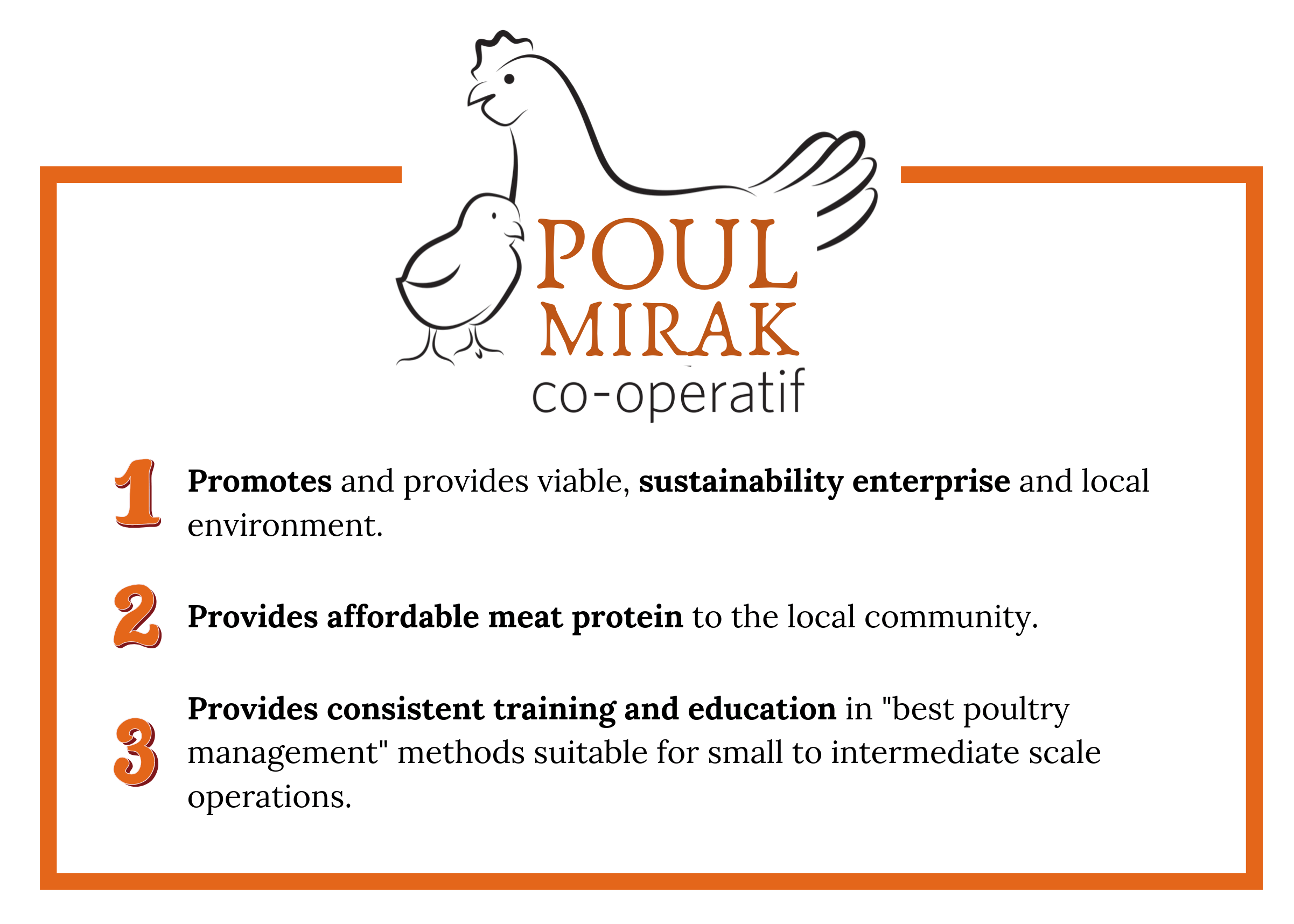
Please take a moment to view our image gallery below.
![]()
How the chicken project works…
Love A Child is now offering a training class for raising chickens in Haiti…
Love A Child, through its Poul Mirak Chicken Co-operative, is now offering a training class for raising chickens in Haiti. One of the stated objectives of our Poul Mirak chicken co-op is to ensure a place of continuing education in basic poultry science, geared specifically to conditions in Haiti.
It is a residential program where students will come and stay in the ATC bunkhouse to live, learn and work together. After operating successfully for three years, our co-op members are now offering the “Poul Mirak chicken school”. This course runs for 6 days, covering basic poultry science; how to raise chickens, from 1-day old through egg-laying age. Students learn how to raise chickens for both meat and for eggs.
The cost of registration and tuition is $155 per student which includes, room and board, instruction, books, a student t-shirt and a Certificate of Completion. Upon completion, students should have enough knowledge and skill to confidently raise chickens for meat, and eggs either for consumption or as a small business enterprise.
Please contact Rad Hazelip at the Ft. Myers Love A Child office for further information or to register a student. Rad Hazelip, 239-210-6107, or email [email protected]
To learn about all of our programs, please visit our Sustainability Initiatives web pages.


